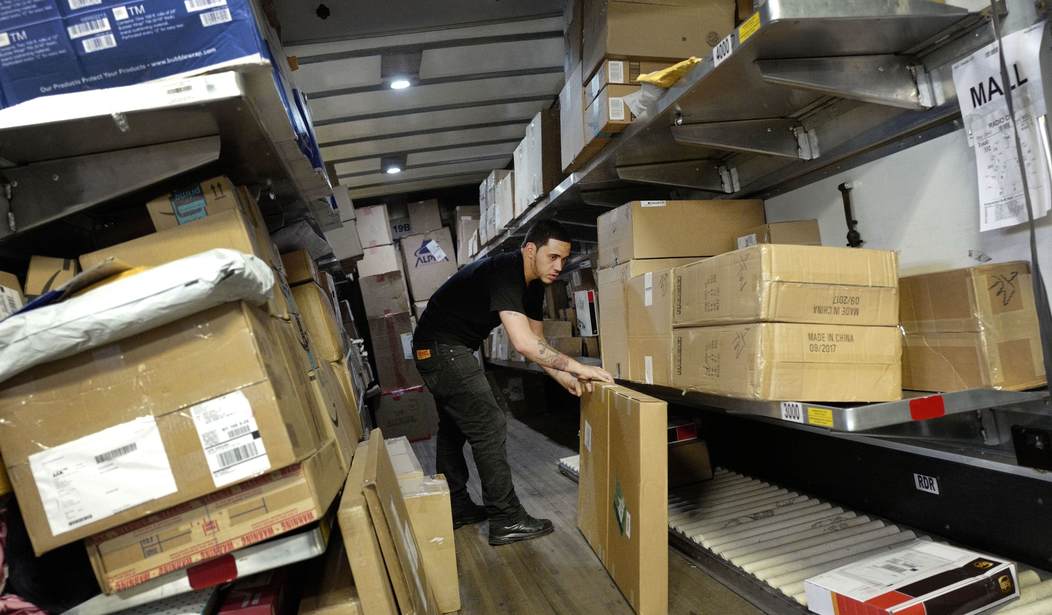Montana Attorney General Austin Knudson and a coalition of 16 other Republican AGs have sent letters to the CEOs of FedEx and UPS demanding answers about new policies that they allege could help the Biden administration establish a backdoor gun registry.
In the letters, Knudson and other AGs say they’ve heard from a number of federally licensed firearms dealers over the past few weeks about the new policies, which require all FFLs to “create three separate shipping accounts: one for firearms, one for firearm parts, and one for all other firearm-related products.” Knudson says that because FFLs can no longer mix-and-match shipments, the companies are now able to determine whether a particular shipment includes a gun part, accessories, or an actual firearm.
According to the AGs, that new policy, combined with other new restrictions, has left them wondering if UPS and FedEx are now enabling the government to establish at least a partial database of gun owners in violation of federal law. From the letter sent to FedEx CEO Raj Subramaniam:
In addition to creating three distinct shipping groups, FedEx now apparently demands that gun store owners retain documents about what specific items those shipments contain and make that information available to FedEx upon request. These demands, in tandem, allow FedEx to create a database of American gun purchasers and determine exactly what items they purchased.
Perhaps most concerning, your policies allegedly allow FedEx to “comply with … requests from applicable law enforcement or other governmental authorities” even when those requests are “inconsistent or contrary to any applicable law, rule, regulation, or order.” In doing so you—perhaps inadvertently—give federal agencies a workaround to federal law, which has long prevented federal agencies from using gun sales to create gun registries. But under these policies, FedEx can provide information at will or upon request to federal agencies—information detailing which Americans are buying what guns.
In addition, Knudson says that FedEx (but not UPS) has established a “gag rule” instructing FFLs that the new policy is “confidential” and not to be disclosed “unless required by law”; a provision that Knudson and his colleagues describe as “very disturbing”.
Both UPS and FedEx have now been asked to answer a number of questions:
1. Did UPS/FedEx enact these policies with the goal of information sharing with the Bureau of Alcohol, Tobacco, Firearms and Explosives (ATF) or any other federal agency?
2. Did UPS/FedEx enact these policies at the request of officials in ATF, a different federal agency, or on its own initiative?
3. If UPS/FedEx implemented these policies at the request of a federal agency, please identify that agency, the officials who made that request, the nature of that communication, and any legal authorization cited by those officials.
4. If UPS/FedEx changed its policies on its own initiative, please explain why it made those changes.
5. Did UPS communicate or coordinate with FedEx in making these changes?
6. Did ATF or other federal agency employees help draft the updated shipping agreements?
The letters also instruct the companies to provide copies of their current shipping policies as well as answers to the above questions within 30 days, as well as recommending that the shipping conglomerates “consider taking actions to limit potential liability moving forward, including the immediate cessation of any existing warrantless information sharing with federal agencies about gun shipments.”
I’m glad to see these AGs press FedEx and UPS on their new policies, though there are a number of other questions that the CEO’s should have to answer, starting with why their new policies have blocked all non-FFLs from using their services to ship firearms and gun parts entirely, while subjecting FFLs to severe restrictions, as NRA’s Institute for Legislative Action described back in September.
A recent article from Ammoland.com indicates UPS wants to not just shut out non-FFLs from using its service, but is also targeting many, if not most, FFLs. According to the article, UPS has told FFLs that operate online that they would have to “ship an average of 50 handguns daily to use its 2nd Day Air service.”
The article goes on to state, “The volume necessary means that most online retailers and manufacturers are now cut off from shipping guns through the carrier unless the handgun is shipped using the expensive Next Day Air service.”
Anti-gun organizations have been pressuring UPS (along with, presumably, FedEx) to sever ties with the firearms industry, according to the article.
In fact, a July Ammoland article had earlier exposed UPS apparently caving to the anti-gun agenda. The shipping company not only cancelled the account of a Florida retailer that specialized in parts that can be used to build firearms, but UPS told the retailer that any of its products that were in the shipper’s system “may be seized and destroyed.”
Hopefully the six questions posed by the seventeen AGs are just the start of a deeper dive into the allegations of anti-Second Amendment practices of these corporations. Whether or not the CEOs will be forthcoming or keep mum about any involvement with the ATF in developing and implementing their new policies, however, remains to be seen.








Join the conversation as a VIP Member